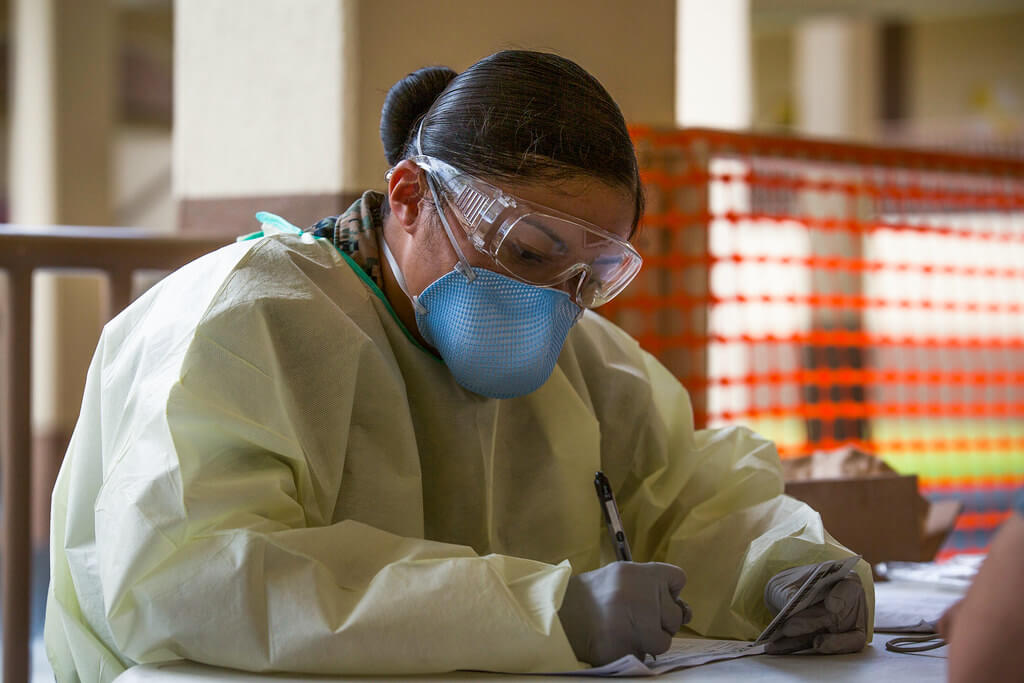The lack of COVID-19 data on immigrants and racialized minorities collected and shared by Canada’s many layers of government could lead to health inequities.
Canada is not alone in having a data gap on immigrant and racialized groups. In the United States civil rights groups and doctors have called on its federal government to release demographic data on coronavirus infections.
Analysis that looks at the number of COVID-19 cases based on publicly available American data and census information shows that counties that are majority African-American have three times the rate of infection and almost six times the rate of deaths as counties where white residents are in the majority. It is a trend that has raised alarm across American cities.
Understanding Canada-U.S. differences
Past research suggests, however, that Canadians should be cautious in reaching conclusions and not automatically assume that what takes place in the U.S. naturally holds true north of the border.
The ‘healthy immigrant effect’ debate, for instance, which shows that many newcomers to the country self-report better health than native-born Canadians may mean that immigrants, who are also largely racialized, may not follow the same patterns as seen in the U.S.
What is needed to answer that question, and many others, is access to quality data. And just like personal protective equipment – it is currently in short supply.
Part of the problem in capturing immigrants and racialized groups in health data rests with how they are captured. Health data is largely the domain of provinces and territories, leading to uneven data collection and reporting across them.
When asked if Ontario could offer insights on the pandemic’s impact on racialized communities, Dr. David Williams, the province’s chief medical officer of health, noted that “statistics based on race aren’t collected in Canada unless certain groups are found to have risk factors.”
Ironically, if data are not collected, one cannot tell if a group has risk factors to begin with. This could lead to health inequities for African-Canadian, Indigenous, racialized, and other new Canadians.
That scenario is a big reason why the African, Caribbean and Black Network of Waterloo Region recently launched a petition demanding that data on race, ethnicity, sexual orientation, and socio-economic status be collected and reported on.
Data gap flows all the way to Ottawa
The data-gap is also seen at the federal level too. For instance, the new and innovative crowd sourced survey on the social and economic impacts of COVID-19 run by Statistics Canada measures age and gender but not other demographic features. The same absence is also seen in the Public Health Agency of Canada’s ‘detailed confirmed cases of coronavirus disease’ data, which is hosted by Statistics Canada.
The detailed data does not provide geo-coding or additional information on the location of the cases which means that researchers cannot link it to census tracts or other geographic units to do the kinds of analysis that was done for American communities.
As a result, the maps offered through the interactive Canada’s COVID-19 Situational Awareness Dashboard are fairly coarse. In many cases, more detailed information can be found through non-governmental sites such as ViriHealth. But, once again, sociodemographic characteristics are not provided and the location data is where people are treated over where they live.
Lastly, once Canada begins to move towards recovery, Statistics Canada’s data on job loses and employment can report on immigrants and racialized groups. Much of this data is collected through the Labour Force survey, which is good news. It’s only logical that measures of health and wellbeing be captured with the same level of detail.
If there’s one thing silver lining to Canada’s experience during the COVID-19 pandemic, it’s reinforcing the point that collecting data matters. It’s essential to insure that everyone, regardless of race or ethnicity, is treated equally as citizens.
Howard Ramos is a political sociologist at Dalhousie University, Halifax, who investigates issues of social justice and equity. He is currently working on projects looking at Atlantic Canadian, secondary cities, integration of immigrants and refugees, hockey and multiculturalism, and the social implication of AI and new technology.





